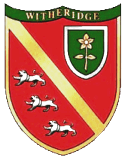

|
Though Magna Carta was written in haste, it did, for the very first time, establish a very significant constitutional principle in that the power of the king could be tempered through a written grant. Often considered by many as a corner stone of liberty, and a primary defence against unjust rule in England, in reality Magna Carta contained few general principles of law, consisting rather of a list of concessions wrung from a reluctant King John by his rebellious barons in 1215. Most of its clauses deal with specific, and often long-standing, grievances, rather than with any general principles of law. Some of the grievances are self-explanatory, whilst others only make sense when considered in the context of the feudal society in which they arose. What it did do however was to establish for the first time a very significant constitutional principle, in that the power of the king could be tempered through a written grant. In feudal society, the king's barons held their lands 'in fee' from the king, for an oath to him of loyalty and obedience, and with the obligation to provide him with a fixed number of knights whenever these were required for military service. At first, the barons provided the knights by dividing their land into smaller parcels described as 'knights' fees', which they distributed to tenants able to serve as knights. However, by the time of King John, it had become more convenient to commute the obligation for service for a cash payment known as 'scutage' and for this revenue be used to maintain paid armies. Besides military service, feudal custom also allowed the king to make certain other demands on his barons. In times of emergency, and on such special occasions as the marriage of his eldest daughter, he could demand from them a financial levy known as an `aid' (auxilium). When a baron died, he could demand a succession duty or 'relief' (relevium) from the baron's heir. If there was no heir, or a disputed succession, then the baron's lands could be forfeited to the Crown. If the heir was under age, the king could assume the guardianship of his estates, and enjoy all the profits from them until the heir came of age. The king had the right, if he chose, to sell such a guardianship to the highest bidder, and to sell the heir himself in marriage for such price, as the value of his estates would command. The widows and daughters of barons could also be sold in marriage. With their own tenants, the barons could deal similarly. In seeking, unsuccessfully to defend his lands in Normandy and Western France, King John levied a series of oppressive demands on his subjects. Taxes were extortionate; reprisals against defaulters were ruthless, and John's administration of justice was at best considered erratic. In January 1215, a group of his Barons took up arms against the King with the aim of obtaining a charter of liberties as a safeguard against the King's arbitrary behaviour, and by May 1215 had captured London. By 10 June, both parties met and negotiated at Runnymede, a meadow alongside the River Thames. The concessions made by King John were set out in a document known as the 'Articles of the Barons', to which the King's great seal was affixed, and, on 19 June, the Barons renewed their oaths of allegiance to the King. Meanwhile the Royal Chancery produced a formal Royal Grant, based on the agreements reached at Runnymede, which became known as Magna Carta (Latin for the 'Great Charter'). The scope for extortion and abuse in this system was obviously great and had been the subject of complaint long before King John came to the throne. Abuses were compounded by the difficulty of obtaining redress for them, and in Magna Carta, the provision of the means for obtaining a fair hearing of complaints, not only against the king and his agents, but also against lesser feudal lords, achieves corresponding importance. About two-thirds of the clauses of the Magna Carta of 1215 are concerned with matters such as these, and with the misuse of their powers by royal officials. As regards other topics, the first clause, conceding the freedom of the Church, and in particular confirming its right to elect its own dignitaries without royal interference, reflects John's dispute with the Pope over Stephen Langton's election as Archbishop of Canterbury. It does not appear in the Articles of the Barons, and its somewhat stilted phrasing seems in part to be attempting to justify its inclusion in the charter itself. The clauses that deal with the royal forests over which the king had special powers and jurisdiction, reflect the disquiet and anxieties that had arisen on account of a longstanding Royal tendency to extend the forest boundaries, to the detriment of the holders of the lands affected. Those that deal with debts reflect administrative problems created by the chronic scarcity of ready cash among the upper and middle classes, and their need to resort to moneylenders when this was required. The clause promising the removal of fish-weirs was intended to facilitate the navigation of rivers. A number of clauses deal with the special circumstances that surrounded the making of the charter, and are such as can be found in any treaty of peace. Others, such as those relating to the City of London and to merchants , clearly represent concessions to special interests. Previous Last Edited 03/07/2006 Copyright © 2000-2006 Witheridge Unless otherwise indicated on the page in question, the photographic images reproduced on this site belong to the Witheridge Archives, and, as such may not be reproduced for commercial purposes without written permission. However, you are welcome to use any of the photographs belonging to the archive for personal and/or non-commercial use. Any material shown as not being owned by the archive may not be reproduced in any form without first receiving written permission from the owner of the material in question. |

